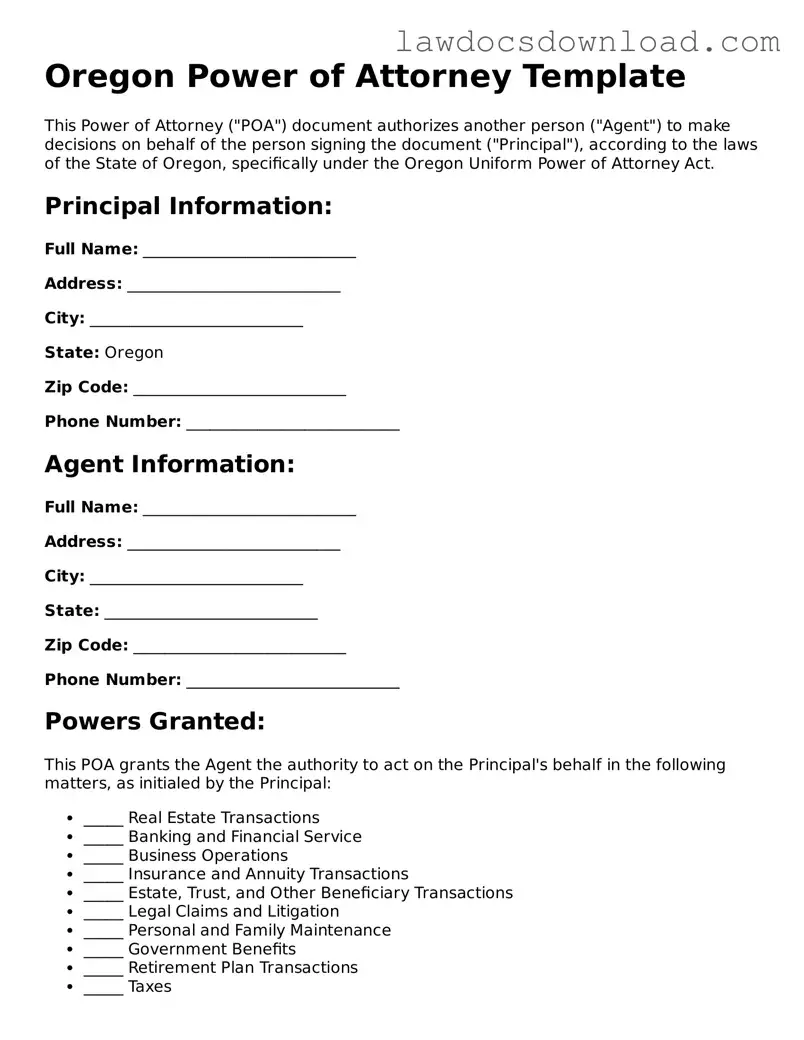Oregon Power of Attorney Template
This Power of Attorney ("POA") document authorizes another person ("Agent") to make decisions on behalf of the person signing the document ("Principal"), according to the laws of the State of Oregon, specifically under the Oregon Uniform Power of Attorney Act.
Principal Information:
Full Name: ___________________________
Address: ___________________________
City: ___________________________
State: Oregon
Zip Code: ___________________________
Phone Number: ___________________________
Agent Information:
Full Name: ___________________________
Address: ___________________________
City: ___________________________
State: ___________________________
Zip Code: ___________________________
Phone Number: ___________________________
Powers Granted:
This POA grants the Agent the authority to act on the Principal's behalf in the following matters, as initialed by the Principal:
- _____ Real Estate Transactions
- _____ Banking and Financial Service
- _____ Business Operations
- _____ Insurance and Annuity Transactions
- _____ Estate, Trust, and Other Beneficiary Transactions
- _____ Legal Claims and Litigation
- _____ Personal and Family Maintenance
- _____ Government Benefits
- _____ Retirement Plan Transactions
- _____ Taxes
Effective Date and Duration:
This Power of Attorney becomes effective on ________________ and will remain in effect until ________________, unless revoked sooner by the Principal.
Signature:
I, ___________________________ (Principal's Full Name), hereby appoint ___________________________ (Agent's Full Name) as my Attorney-in-Fact to act in my capacity to the extent described above. I affirm that this document is being signed freely and voluntarily, and understand its contents.
______________________________________
Principal’s Signature & Date
______________________________________
Agent's Signature & Date
Witness Statement:
We, the undersigned witnesses, declare that the Principal is personally known to us, appeared to be of sound mind and free of duress or undue influence, and signed this Power of Attorney in our presence.
______________________________________
Witness 1’s Signature & Date
Printed Name: ___________________________
______________________________________
Witness 2’s Signature & Date
Printed Name: ___________________________
Notary Acknowledgment:
This document was acknowledged before me on ___________________________ (date) by ___________________________ (Principal's Name).
Notary Public: ___________________________
Commission Number: ___________________________
My Commission Expires: ___________________________
Disclaimer:
This template provides a basic framework for creating a Power of Attorney in the State of Oregon. It's important to consult with a legal professional to ensure that it meets all necessary legal requirements and accurately reflects the Principal's wishes.

